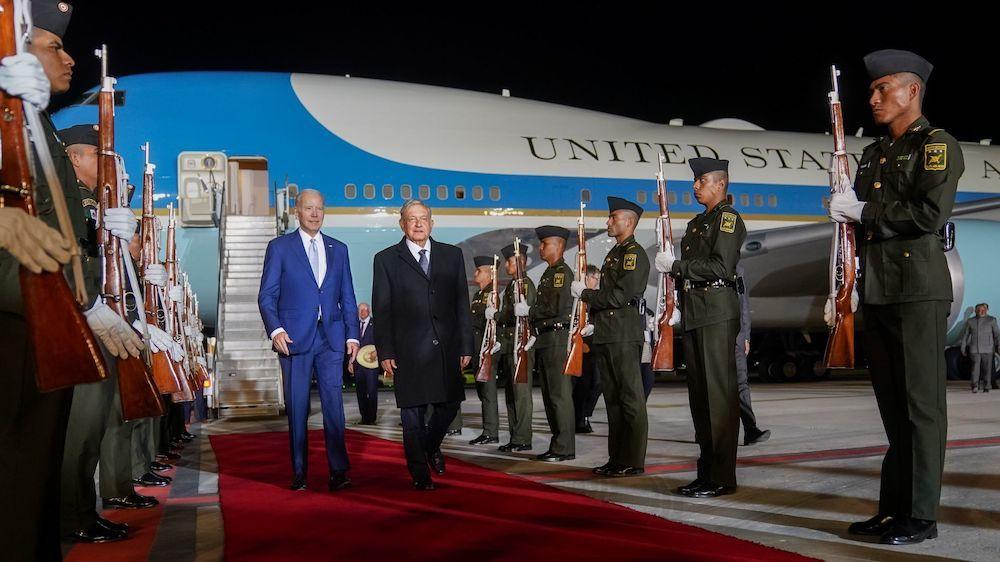In the next few hours, the presidents of Mexico, Andrés Manuel López Obrador, of the United States, Joe Biden, and the Prime Minister of Canada, Justin Trudeau, will meet in Mexico City to hold the North American Leaders Summit.
This will undoubtedly be a very important meeting for Mexico, since it will be bringing together President López Obrador with his two counterparts who are part of the T-MEC, the North American free trade zone.
The agenda that has been handled in recent days, as far as has been known, has, on the one hand, the issue of security and the war on drugs, of special concern to the United States. However, environmental issues will undoubtedly occupy a central place, given the policy adopted by the President of the United States Joe Biden, to strongly promote the energy transition to renewable sources to combat climate change, as did Justin Trudeau of Canada.
In this context, Mexico is moving in the opposite direction with the return to a policy of establishing a state monopoly on energy production, prioritizing fossil fuel generation sources and hindering renewable energy projects, whether wind or solar. In the development of this policy, there have been significant effects on the investments and companies of the other two partners of the T-MEC and with an arbitration process pending with Mexico. Without a doubt, the topic of energy will be present at the summit, given the importance for the three countries and its implications for economic and strategic issues as well, if we think about strengthening production chains within the nearshoring of companies in the United States. This requires reliable and, increasingly, renewable energy sources.
There will be another item on the agenda that could be touched by different countries and that is the growing environmental crisis in Mexico, linked to problems of security and the closure of civic space. Fishing problems have been mentioned, where the most emblematic case is the incidental fishing of marine vaquita, a species in very high danger of extinction, due to the poaching of totoaba, another endangered species, for which pressure from environmental groups in the United States is pushing increasingly strict actions on the part of their government. In addition to the problems of violence against environmental defenders, let's remember that Mexico is the country where the most murders of environmental activists were recorded worldwide, according to a Global Witness report last year. Since the T-MEC is a treaty that since NAFTA has been linked to environmental protection in the process of economic and commercial integration, it is very likely that these problems will be addressed and Mexico will be sought to improve its performance.
The administration of President López Obrador, however, has shown many signs of not being interested in addressing environmental problems. On energy issues, we have seen that this will be a point of conflict, which can lead the country to strong economic sanctions in arbitration processes with its other two partners. On the broader environmental issues, we have observed, on the one hand, that the federal government has cut the budget and staff of agencies related to caring for the environment. On the other hand, it is committed to taking out the large megaprojects of the Maya Train and the Dos Bocas refinery, despite protests and legal demands from communities and environmental groups. President López Obrador has also used the pulpit of morning conferences to denounce activists and scientists who come to oppose them. He does this in a country where activism is often a high-risk task due to the strong violence and insecurity that exist in many communities.
The big question is how much President Biden and Prime Minister Trudeau will succeed in moving López Obrador out of the direction he has imposed on his administration in the environmental area. There is a strong strategic interest on the part of the T-MEC partners in achieving a turnaround, or at least a more acceptable accommodation, for the issue of renewable energy. For the other issues, they may be on the agenda, but their importance is due to the pressure that different pro-environmental and human rights groups impose on the administrations of these two countries and which are reflected in their position towards Mexico. Given the diffusion of the various environmental issues, it is likely that they will not carry as much weight in the summit discussions.



Comentarios (0)